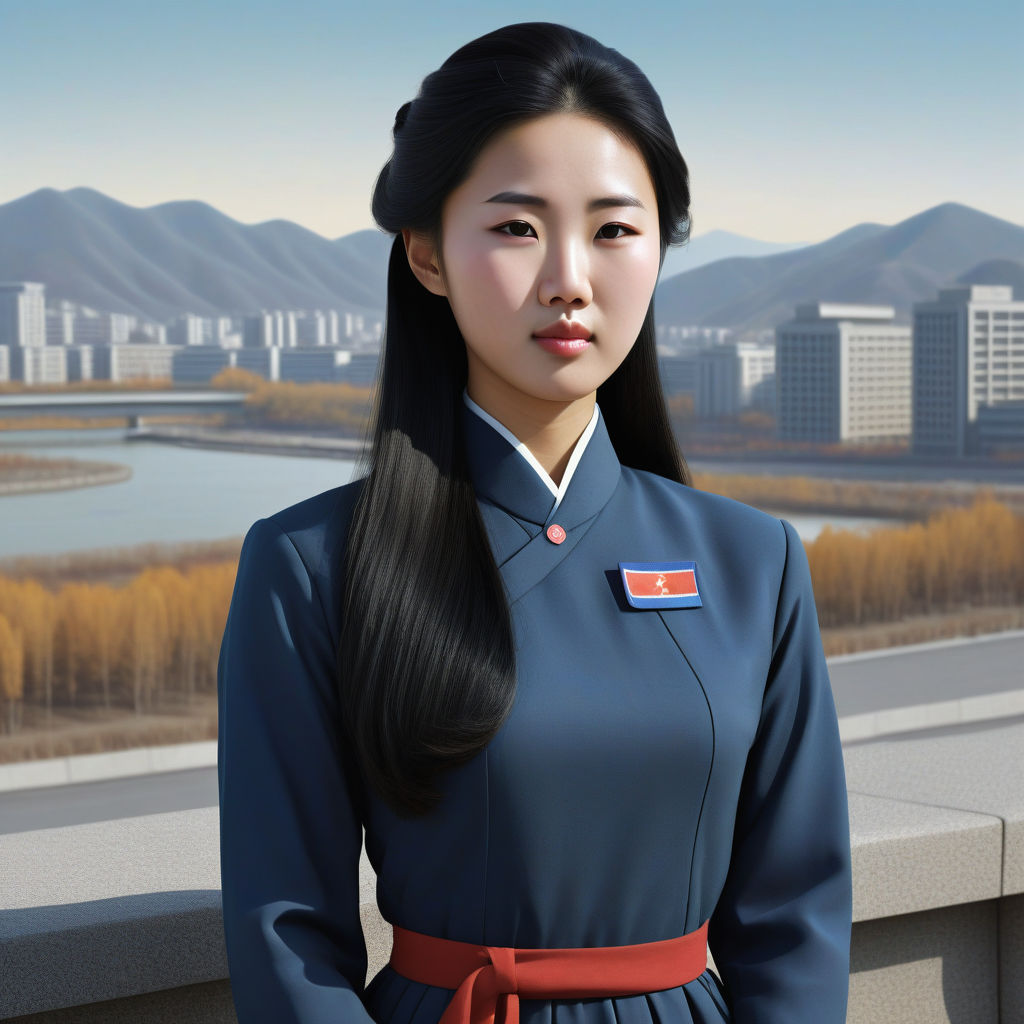Cultural Background
North Korean women are part of a unique cultural landscape deeply rooted in the country’s Juche ideology, which emphasizes self-reliance, patriotism, and loyalty to the ruling Kim family. This cultural backdrop significantly shapes their daily lives and values.
Example: A North Korean woman might participate in state-organized cultural events like the Arirang Mass Games, showcasing national pride through synchronized performances.
Importance: 9/10
Attitude Towards Life
North Korean women generally exhibit resilience and stoicism, a result of their challenging environment and the state's pervasive influence. They are taught to prioritize the collective over individual desires, which fosters a spirit of perseverance.
Example: A North Korean woman might face daily challenges with a stoic attitude, finding strength in community activities and state propaganda.
Importance: 8/10
Social Views
Social views in North Korea are heavily influenced by state doctrines. Women are expected to adhere to traditional roles while also contributing to state goals. Gender equality is promoted in theory, but traditional patriarchal norms still persist.
Example: A North Korean woman might engage in both household duties and work for the state, balancing her roles with a strong sense of duty and loyalty to the country.
Importance: 7/10
Family Values
Family is central to North Korean society, with strong emphasis on respect for elders and maintaining family honor. Women often bear the primary responsibility for childcare and household management.
Example: A North Korean woman might prioritize family gatherings and ensure her household adheres to state-approved norms and behaviors.
Importance: 9/10
Views on Marriage
Marriage is seen as a practical and often state-influenced institution. Compatibility, loyalty, and the ability to contribute to the state’s goals are often prioritized over romantic love.
Example: A North Korean woman might marry someone based on social and political suitability, with weddings incorporating traditional customs and state influences.
Importance: 8/10
Views on Sexuality
Sexuality is a private and rarely discussed topic in North Korea, with traditional views prevailing. Sexual health education is limited, and modern discussions on sexuality are often suppressed.
Example: A North Korean woman might have little public discourse on sexual preferences or health, adhering to conservative norms within the confines of marriage.
Importance: 5/10
Views on Friendship
Friendship is valued but exists within the strict parameters set by the state. Trust is crucial, given the pervasive surveillance and potential repercussions of dissent.
Example: A North Korean woman might form close bonds with neighbors and colleagues, participating in mutual aid groups and state-sponsored social activities.
Importance: 7/10
Communication Views
Communication is cautious and regulated, with women often wary of expressing views that might be seen as counter to state doctrines. Open and honest communication is practiced within trusted circles.
Example: A North Korean woman might engage in open conversations with close friends and family, while maintaining a more guarded approach in public settings.
Importance: 6/10
Work Views
Work is a significant aspect of life, with many women assigned jobs by the state. There is a strong emphasis on contributing to the collective good and fulfilling state-mandated duties.
Example: A North Korean woman might diligently perform her assigned work, balancing it with her household responsibilities and participating in labor mobilizations.
Importance: 8/10
Money Views
Financial stability is important, but opportunities for personal wealth accumulation are limited. The state controls most economic activities, and women are expected to live modestly.
Example: A North Korean woman might save resources carefully, focusing on basic necessities and participating in the state’s distribution system.
Importance: 6/10
In summary, North Korean women are characterized by their resilience, loyalty, and strong sense of duty. They value family, work, and social stability within the framework of state ideology, balancing personal and communal responsibilities in a highly regulated environment.
